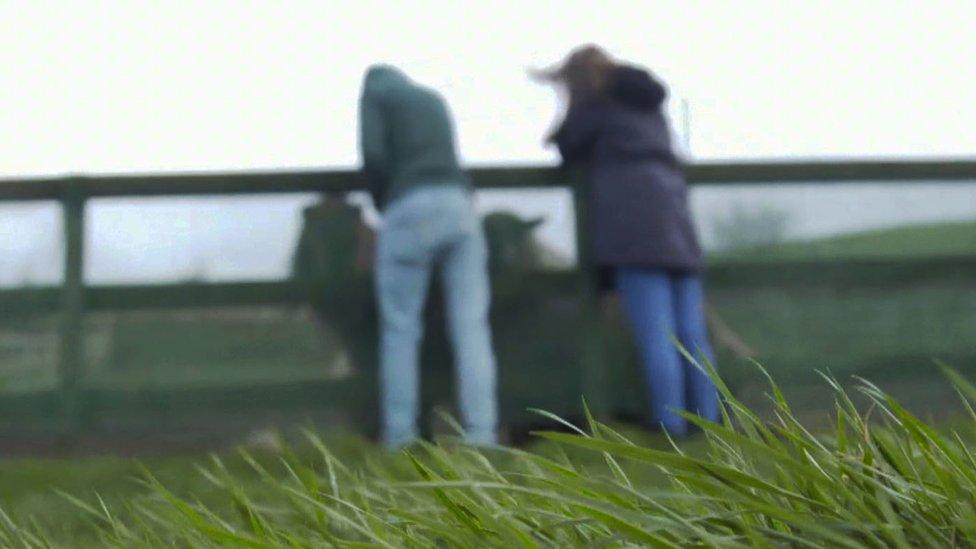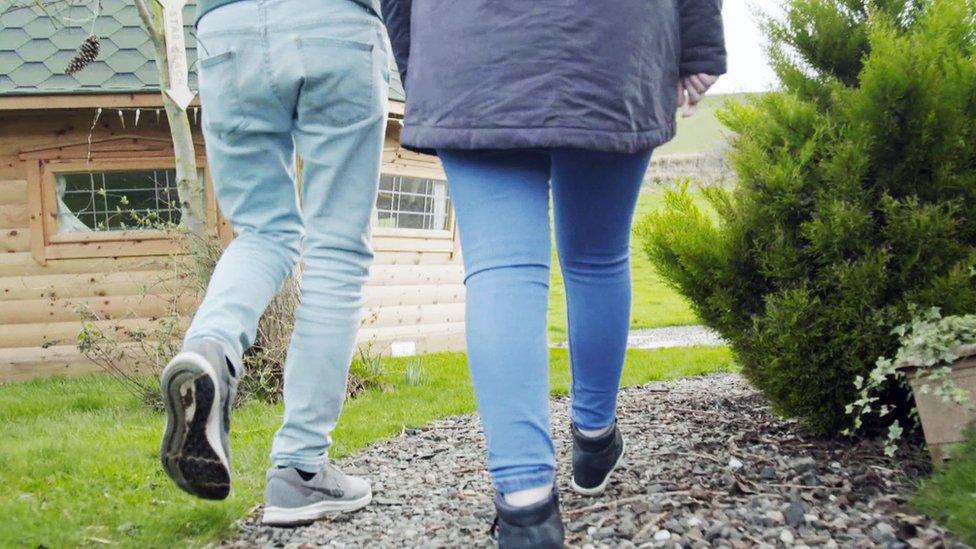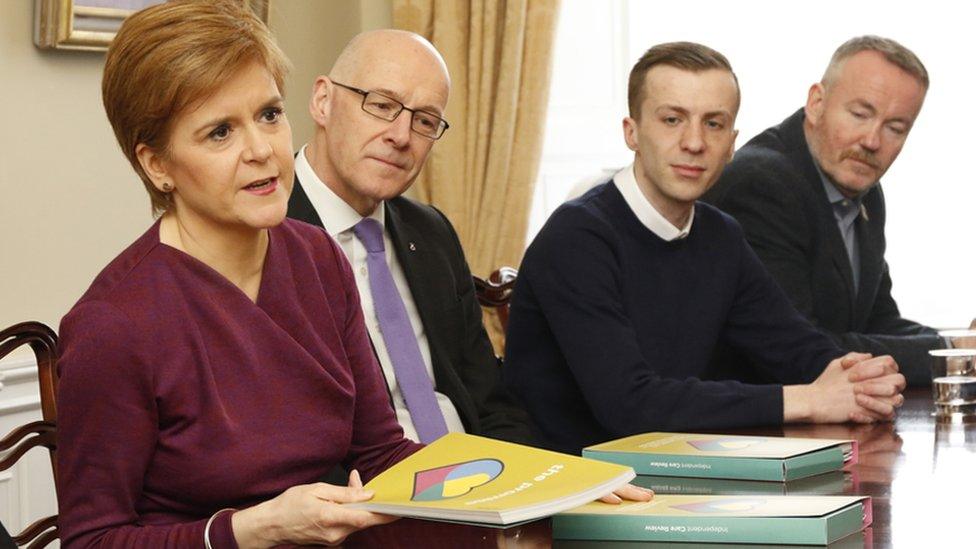Brothers and sisters split up by the care system
- Published
Siblings separated in the care system
A major review of Scotland's care system has said the pain of brothers and sisters being separated often has "profound and had lifelong consequences".
Chris, 14, and his older sister Chloe have been in the care system since primary school. At first they were placed in foster care together.
"We stuck up for each other," says Chloe. "If he was upset I'd comfort him and if I was upset he'd comfort me."
She says that even before they went into care she protected her brother.
"I'd look after him," she says. "I'd make sure he was fed before I fed myself."
Eventually they were separated within the care system and have spent the past four years living apart.
Chloe remembers the day her brother was moved away. She was at school and asked to go to the office to speak to her carers on the phone.
"I literally just dropped the phone and ran out and burst into tears," Chloe says.
"When he left I just didn't think I had a purpose anymore."
Her brother Chris told BBC Scotland's The Nine: "We didn't even see each other for a year."
Chris says the siblings wanted to make contact with each other but staff said they were too busy.
Independent care review
Their story is not unique. It is one of many in a care system now under scrutiny.
The Independent Care Review spent three years speaking to 5,500 people, external - more than half of whom had been in care themselves.
Some children told the review that being taken into care was among the most traumatising experiences they had ever had, exacerbated by being separated from their brothers and sisters.
There is already the presumption that children will stay together with their brothers and sisters if they have to be removed from their family.
The review says there will be a few circumstances where it is not appropriate for brothers and sisters to stay together but these will be the exception.
However, evidence gathered for the review suggests between 50% to 80% of sibling groups are split up.

Chris and Chloe now meet up once a month at a charity project in Fife which has reunited 400 siblings
Chloe and Chris now meet up every month at the Star project at a farm in Fife.
This charity alone says it has re-established contact between about 400 siblings since 2013.
Its founder Karen Morrison says the activities on the farm help to break the ice when siblings have not seen each other for a long time.
"It is a lot easier to chat while digging or planting seeds than it is to sit on opposite sides of a table," she says.
Ms Morrison says the idea for the charity came about when her family were providing respite foster care and she noticed that children were being separated.
"Seeing their little faces, it was just devastating the way they had the weight of the world on their shoulders," she says.
It was "heart-breaking" to send them back to separate placements, Ms Morrison says.
Incomplete data

In December 2018, the Care Inspectorate recorded 1,042 sibling groups in foster care. Of those, 24% were separated upon placement.
However, the care review found national data on sibling separations was incomplete or inadequate.
For example, there are no figures on how many looked-after children have brothers or sisters, whether they are also in the system and how many of them are living together or apart.
Dr Christine Jones, a senior lecturer in social work at the University of Strathclyde, studied the progress more than 150 brothers and sisters in care. She found that seven in 10 sibling groups were separated in the system.
"All of the research tells us that having good positive relationships with your sibling is a protective factor if you come into the care system," she says.
"If you lose that relationship then it can have really massive implications for children, not just in the childhood but also into adulthood."
More than three years of work by the care review has refocused on this issue, resting on the experiences of youngsters like Chloe and Chris.
Chloe says: "You only have that one true friend and for me that was my brother. We bicker more than we get along."
"But it is friendly bickering," says Chris.
- Published5 February 2020
